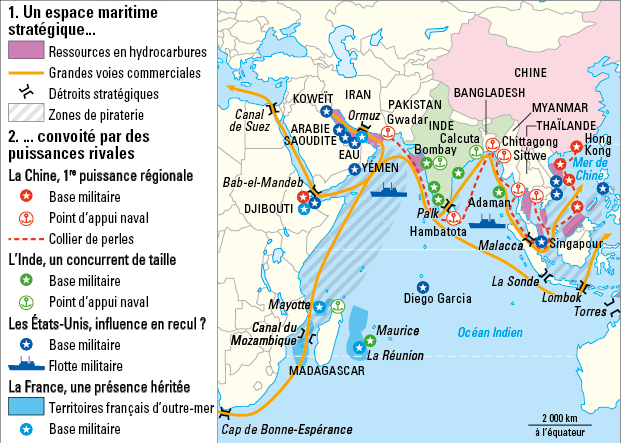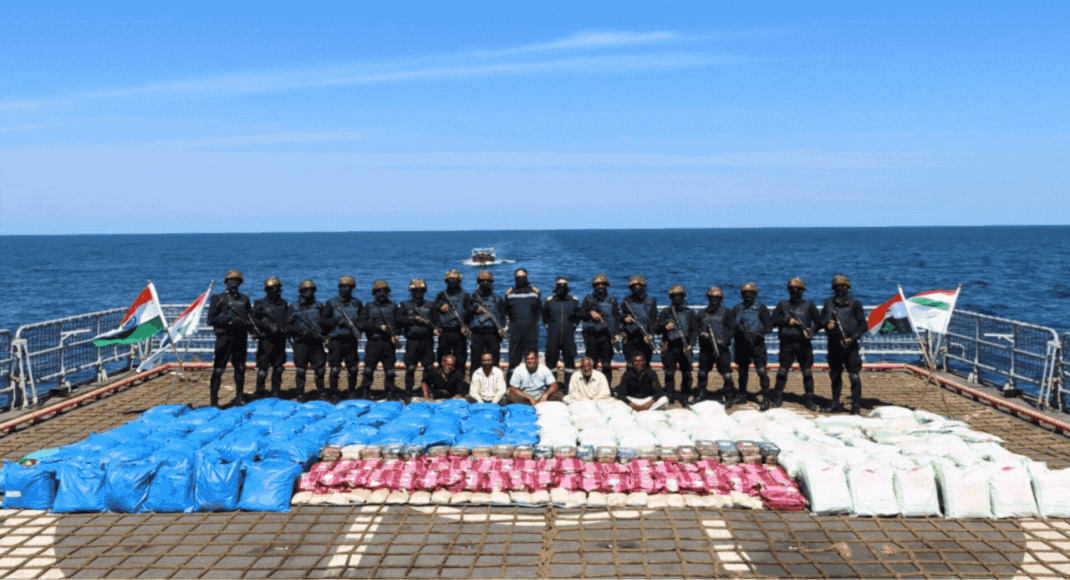Crédit Mutuel AM : Géopolitique Et Risques Environnementaux Maritimes

Table of Contents
Géopolitique et instabilité maritime
Geopolitical instability significantly impacts maritime trade routes and investment opportunities. The unpredictable nature of international relations creates a complex risk profile for maritime businesses and investors. Factors such as armed conflict, piracy, and the imposition of sanctions significantly disrupt supply chains and increase the cost of maritime transport.
- Geopolitical Hotspots: Several regions present significant challenges. The South China Sea, with its overlapping territorial claims, and the Strait of Hormuz, a crucial oil shipping lane, are examples of areas with high geopolitical risk. Increased military activity and potential conflicts directly impact shipping routes, leading to delays, increased insurance premiums, and potential asset losses.
- Piracy and Armed Conflict: Piracy remains a persistent threat, particularly in certain areas of the Indian Ocean and the Gulf of Guinea. Armed conflicts in various regions can further destabilize maritime trade, leading to disruptions and significant security concerns for vessels and crews. This necessitates robust security measures and significantly impacts the cost-effectiveness of maritime operations.
- Sanctions and Trade Restrictions: International sanctions can severely impact maritime trade, limiting access to certain ports or restricting the transport of specific goods. This adds complexity to shipping routes and supply chains, demanding careful planning and risk mitigation strategies. Understanding and adapting to these changing regulatory landscapes is crucial for successful maritime investments.
Risques environnementaux et durabilité maritime
The environmental challenges facing the maritime sector are equally pressing. Climate change, pollution, and biodiversity loss are transforming the operational environment and demanding a shift towards greater sustainability.
- Climate Change Impacts: Rising sea levels and increasingly frequent extreme weather events pose significant threats to port infrastructure and shipping operations. Storms, floods, and changing weather patterns can cause delays, damage, and even the loss of vessels and cargo, impacting investment returns.
- Marine Pollution: Marine pollution from plastics, oil spills, and other sources has devastating consequences for marine ecosystems and poses significant reputational risks for companies involved in maritime activities. Stricter regulations and growing public awareness are driving the need for more sustainable practices.
- IMO 2020 and Beyond: The International Maritime Organization's (IMO) 2020 sulfur cap on fuel is a landmark regulation aimed at reducing air pollution from ships. This illustrates a wider trend towards tighter environmental regulations, highlighting the importance of compliance and investment in cleaner technologies.
- Renewable Energy Transition: The maritime sector is beginning to embrace renewable energy sources, creating opportunities for investment in wind, solar, and other sustainable technologies for powering ships and port operations. This transition presents significant long-term growth potential for environmentally conscious investors.
La stratégie de Crédit Mutuel AM face à ces risques
Crédit Mutuel AM takes a proactive approach to managing geopolitical and environmental risks in its investment strategies. The firm integrates ESG (Environmental, Social, and Governance) factors into its investment process to assess and manage these complex challenges effectively.
- ESG Integration: Crédit Mutuel AM employs a robust ESG integration process, analyzing the environmental and social impacts of potential investments. This thorough due diligence process allows them to identify and mitigate potential risks while seeking out opportunities in sustainable maritime solutions.
- Due Diligence Procedures: Rigorous due diligence procedures are implemented to evaluate the geopolitical and environmental risk profiles of maritime companies and projects. This includes assessing exposure to conflict zones, piracy, sanctions, and environmental regulations.
- Risk Assessment and Mitigation: A comprehensive risk assessment framework is used to identify, evaluate, and manage the potential financial and reputational impacts of various geopolitical and environmental risks. This allows for informed decision-making and proactive risk mitigation strategies.
- Sustainable Maritime Investments: Crédit Mutuel AM actively seeks investment opportunities in companies driving innovation in sustainable maritime solutions, such as alternative fuels, efficient engines, and port infrastructure upgrades that enhance resilience.
Opportunités d'investissement responsable dans le secteur maritime
Despite the challenges, the maritime sector presents significant opportunities for responsible investment. The growing focus on sustainability is driving innovation and creating a demand for greener and more efficient technologies.
- Green Shipping Technologies: Companies developing and deploying alternative fuels (e.g., LNG, hydrogen), more efficient engines, and other green technologies are attracting increasing investment. This sector offers promising returns while contributing to environmental sustainability.
- Resilient Port Infrastructure: Investments in upgrading port infrastructure to withstand the impacts of climate change, improving resilience to extreme weather events, and enhancing efficiency are crucial and offer strong investment potential.
- Sustainable Supply Chains: Investors are increasingly focused on supporting companies committed to building more sustainable supply chains, reducing their environmental footprint, and promoting ethical labor practices throughout the maritime value chain. This offers an opportunity to invest in companies that are not only financially sound but also environmentally and socially responsible.
Conclusion
Navigating the complexities of geopolitical and maritime environmental risks requires a strategic and responsible approach to investment. Crédit Mutuel AM demonstrates its commitment to sustainable investing by proactively managing these risks and identifying opportunities in the evolving maritime landscape. By integrating ESG factors into their investment process and actively seeking sustainable solutions, Crédit Mutuel AM offers investors a pathway to both financial returns and positive environmental and social impact. Discover how Crédit Mutuel AM is navigating the complexities of geopolitical and maritime environmental risks and building a sustainable future for maritime investments. Learn more on [link to Crédit Mutuel AM website].

Featured Posts
-
 Arenado Contract Talks Stall Latest Mlb Rumors And Implications
May 19, 2025
Arenado Contract Talks Stall Latest Mlb Rumors And Implications
May 19, 2025 -
 Investors Shouldnt Worry Bof As Take On Current Stock Market Valuations
May 19, 2025
Investors Shouldnt Worry Bof As Take On Current Stock Market Valuations
May 19, 2025 -
 China Pakistan Satellite Cooperation An Indian Defense Perspective
May 19, 2025
China Pakistan Satellite Cooperation An Indian Defense Perspective
May 19, 2025 -
 Restaurant Owner Demands Accountability After Dream Business Stolen
May 19, 2025
Restaurant Owner Demands Accountability After Dream Business Stolen
May 19, 2025 -
 Jennifer Lawrences Second Baby Details On The New Arrival
May 19, 2025
Jennifer Lawrences Second Baby Details On The New Arrival
May 19, 2025
